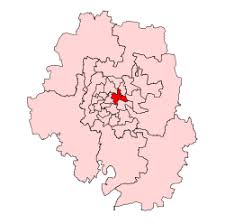Karnataka: A Deep Dive into Its Culture and Development

Introduction
Karnataka, a vibrant state in the southern part of India, is known for its rich cultural heritage, economic significance, and dynamic political landscape. Home to major cities like Bengaluru, Mysuru, and Mangalore, Karnataka plays an essential role in India’s development and modernization. Understanding Karnataka’s multifaceted identity is crucial in grasping its position within the larger framework of India.
Cultural Heritage
The culture of Karnataka is a harmonious blend of various traditions, languages, and cuisines. Kannada, the state language, is celebrated through literature and art, with illustrious poets and writers contributing to its rich tapestry. Festivals like Dasara in Mysuru and Karaga in Bengaluru represent the state’s vibrant traditions. Karnataka is also famous for its classical dance forms such as Bharatanatyam and Yakshagana, showcasing its artistic prowess.
Economic Significance
Economically, Karnataka stands out as one of the leading states in India. Bengaluru, often referred to as the ‘Silicon Valley of India,’ is a global tech hub, hosting major multinational companies and countless startups. The state significantly contributes to India’s IT sector, biotechnology, and manufacturing industries. Additionally, Karnataka’s agriculture plays a pivotal role, producing crops like coffee, rice, and sugarcane, which are essential for both local consumption and export.
Political Landscape
Karnataka’s political environment has witnessed substantial changes over the years. The state is governed by a coalition of parties, with the Indian National Congress and the Bharatiya Janata Party being major players. Recent elections have highlighted the evolving political dynamics, with citizens increasingly focused on development, governance, and welfare schemes. The state will likely continue to be a focal point in national politics, especially as it heads towards the next election cycle.
Future Outlook
Looking ahead, Karnataka is set to enhance its contributions to India’s growth further. Initiatives like the Bengaluru Suburban Rail Project and various infrastructure improvements will likely attract more investments and create job opportunities. Moreover, the state’s emphasis on education and research, with institutes like the Indian Institute of Science (IISc), promises to cultivate a skilled workforce ready to face global challenges.
Conclusion
Karnataka is more than just a state; it is a microcosm of India’s diversity, innovation, and potential. As the state continues to navigate its cultural, economic, and political journey, its significance within India’s narrative only strengthens. For residents and observers alike, Karnataka represents a land of opportunities and an integral part of India’s future landscape.







